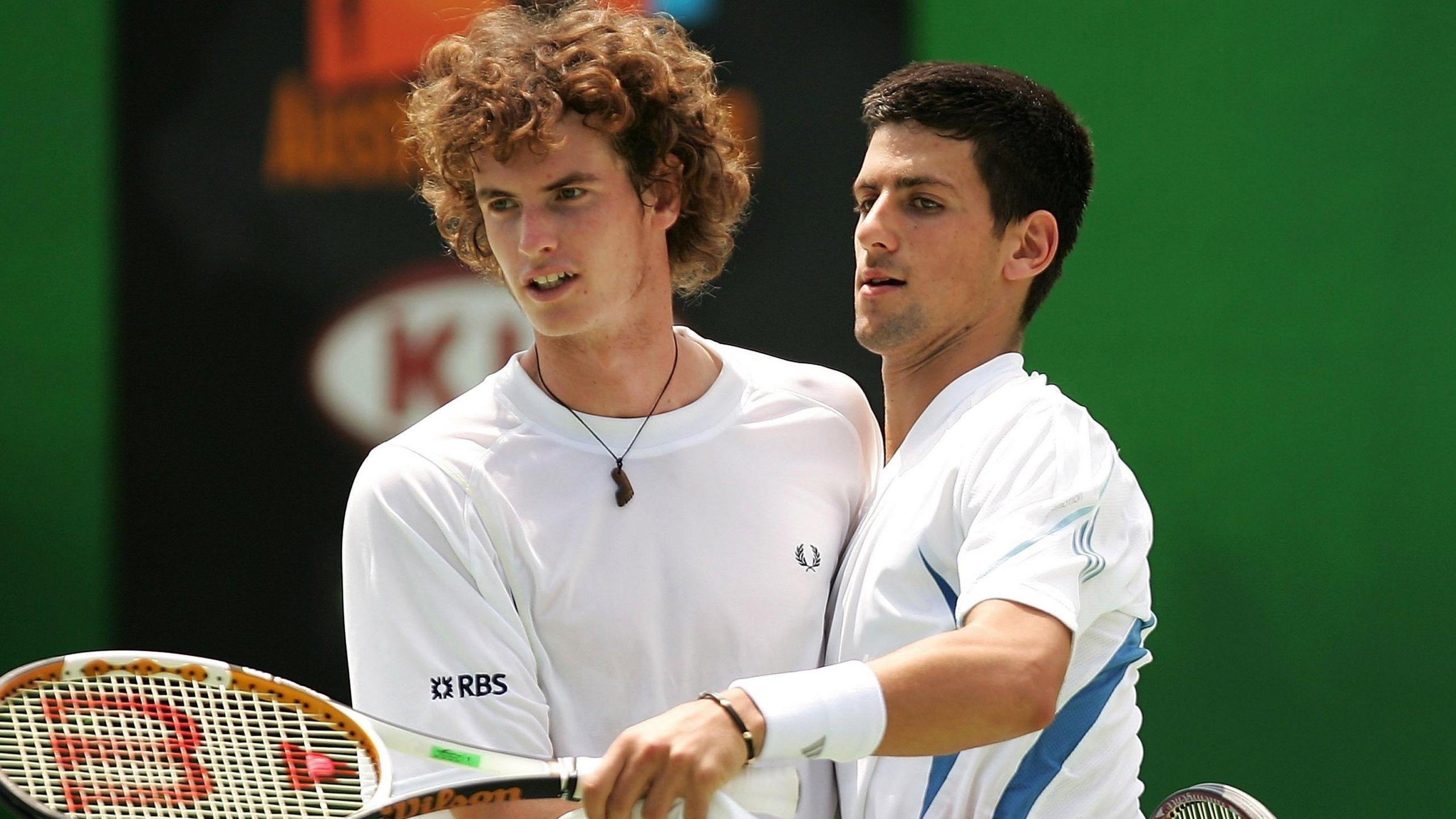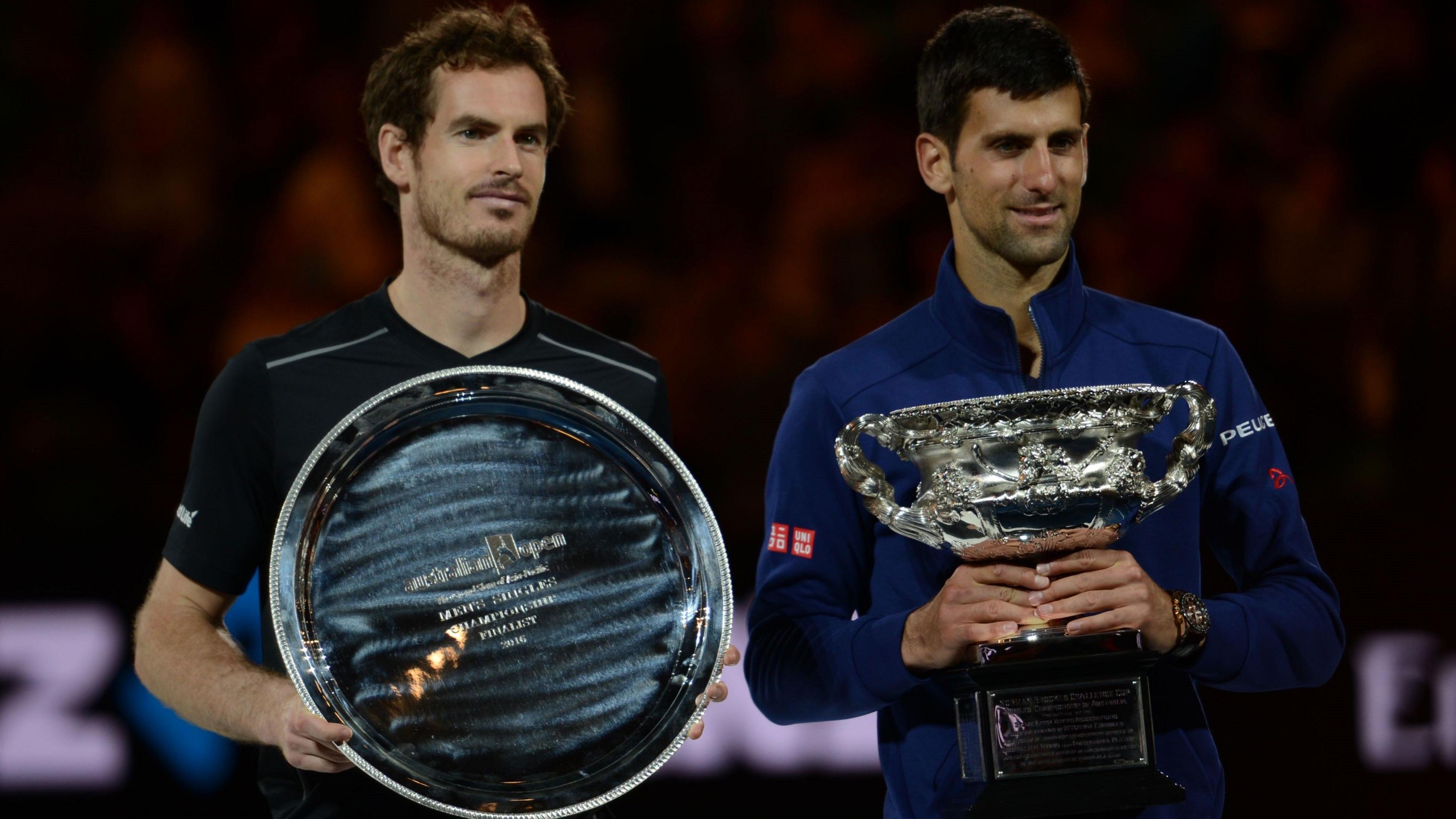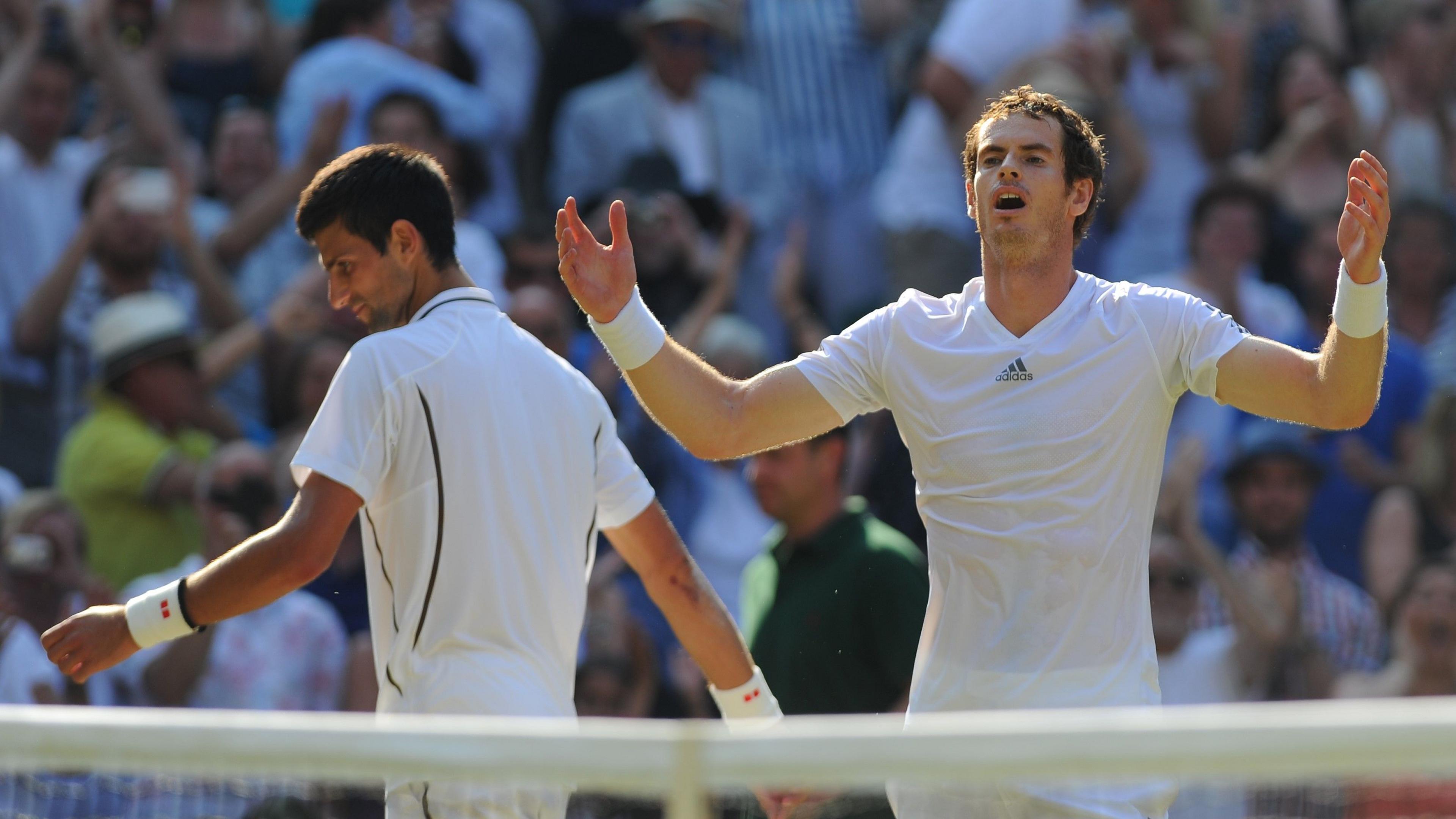What being coached by Murray could do for Djokovic

Andy Murray and Novak Djokovic played doubles together at the 2006 Australian Open
- Published
Andy Murray hiring Ivan Lendl and Novak Djokovic appointing Boris Becker were two breathtaking moments of surprise.
But the news that Murray will coach Djokovic at January's Australian Open may cause even more exhilaration. I am sure I am not the only one who checked the date, to make absolutely certain it was not 1 April.
These two are only seven days apart in age, and shared the court in seven Grand Slam singles finals.
Friends as juniors, they became rivals as seniors. There was many a heated moment along the way but, helped by a shared history, they mostly seemed to get along pretty well.
"Never even liked tennis anyway," Murray posted on the day he retired from playing.
"He never liked retirement anyway," Djokovic posted on the day the Scot began his coaching career.
Djokovic has frequently worked with Grand Slam champions in a career which has so far returned 24 major titles. There were three years with Becker, six with Goran Ivanisevic and a less productive year in the company of Andre Agassi.
Djokovic said Becker was someone he would "look to for eye contact in the tough moments".
Agassi's skill, he said, was distilling complex concepts into precise information and reminding him how good he is.
Boris Bosnjakovic, who previously ran the Novak Tennis Centre, has been minding the ship since Ivanisevic left in March.
But another appointment always seemed likely as 37-year-old Djokovic heads into 2025 trying to break the hold Jannik Sinner and Carlos Alcaraz have on the Grand Slam titles.
Murray to coach Djokovic at Australian Open
- Published23 November 2024
What next for Murray after his retirement?
- Published2 August 2024
Sinner & Berrettini lead Italy into Davis Cup final
- Published23 November 2024
Murray's presence will very likely prove a stimulus, and his reading of the game and analysis of other players when competing suggests he has the makings of an outstanding coach.
"Andy's very sharp with the data side of things and the strategy," Murray's coach of six years Jamie Delgado told BBC Sport.
"You have got to remember that Andy has played against Novak many times, so he will know and express to Novak what makes him so difficult to play against, remind him of those things that his opponents will be feeling when they play against him.
"Novak has now got different rivals in front of him - Sinner and Alcaraz - and Andy's played these guys himself, so in terms of getting that final few per cent to make a difference in matches from a strategy point of view, you would be hard pushed to find someone better than Andy."

Andy Murray lost four Australian Open finals and one semi-final to Novak Djokovic
'Practice sessions will be box-office'
The most surprising part is the timing. Murray only retired from playing four months ago. That time has been shared between his family and his golf clubs, but as he told the Control the Controllables podcast last year, if his children are at school, he is often bored by Wednesday lunchtime.
The opportunity to work with Djokovic is unlikely to come around again and, having lost four Melbourne finals to the Serb, he may think he will never have a better chance to win the Australian Open.
Joking aside, there do not appear to be many downsides. Djokovic has not currently entered any events before the Australian Open, so Murray should be free to enjoy the Christmas holiday at home after some work together during the off-season.
Their Melbourne practice sessions will be box office, and it will be enthralling to see how their relationship develops and whether Murray could be a feature of Djokovic's team at some of the year's other Grand Slams.
"They always got on well, but I don't think it would have been as close as it maybe was when they were younger - or it would be now," Delgado says of their relationship.
"There was just so much on the line. But they had immense respect for each other.
"Andy always spoke so highly of his [Djokovic's] game and how difficult it was to play against him. The respect was sky high."
The final great act in their playing rivalry was the race to be the year-end world number one in 2016.
"When me and Novak speak with each other, we don't talk about tennis, rankings, the matches we play against each other," Murray said earlier that year.
"Maybe when we finish playing, that might change."

...but Murray triumphed over Djokovic in a memorable Wimbledon final in 2013